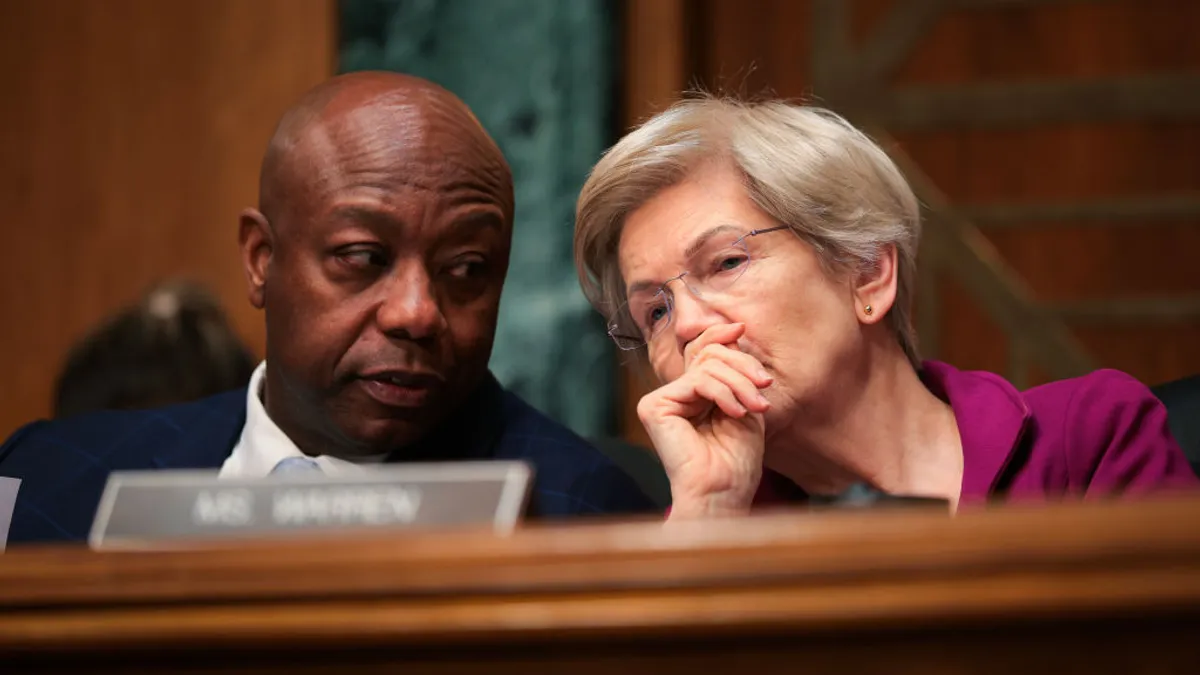HomeStreet has found a landing spot.
The bank will merge into Walnut Creek, California-based Mechanics Bank in a transaction that values the Seattle-based lender at around $300 million.
The deal, expected to close in the third quarter, would expand Mechanics into Washington, Oregon and Hawaii, and create a $23 billion-asset bank that adds 56 branches to the California lender’s 112-location footprint.
“We are excited through this transaction to extend our market presence with a full West Coast footprint from San Diego to Seattle,” Carl Webb, the chair of Mechanics’ board, said in a statement Monday. “This strategic merger also provides us with the opportunity to become a publicly traded bank holding company, which better positions Mechanics Bank for future opportunities.”
The transaction gives HomeStreet a partner, four months after the Seattle lender and its previous would-be acquirer, Denver-based FirstSun Capital Bancorp, terminated their proposed combination.
That deal, initially announced in January 2024, saw several tweaks, including an attempt by FirstSun to switch to a Texas state charter rather than a national one – perhaps to avoid needing sign-off by the Office of the Comptroller of the Currency.
FirstSun’s CEO in April 2024 said “it became obvious” the deal would not gain “near-term approval” because of the concentration of commercial real estate and multifamily loans.
Then, roughly three weeks before the deal collapsed, the banks said they were “discussing the pursuit of an alternative regulatory structure” after FirstSun said talks with the Federal Reserve and a Texas agency indicated the tie-up may not get a green light.
Since the termination, HomeStreet has offloaded some of its holdings in those segments, selling $990 million in multifamily loans to Bank of America.
Bank executives, on a call Monday, said HomeStreet’s CRE concentration is still roughly 575% of its capital, while Mechanics’ stood at about 289%. The CRE concentration for the combined company would be around 390%.
“We have discussed our plans to reduce that concentration over time,” Webb said, adding that work would be done to get that figure closer to 300%, a key benchmark regulators have cited as warranting attention if exceeded.
HomeStreet’s mortgage lending cratered after the Fed began increasing interest rates in 2022. The bank saw more than $3.3 billion in origination volume that year, but the figure crashed to $747 million in 2023, according to Home Mortgage Disclosure Act data. HomeStreet saw a $144.3 million loss over 2024, the bank reported in January.
“This merger validates the intrinsic value of HomeStreet’s loyal customer base, strong management and dynamic markets in which we operate and allows our shareholders to participate in the benefits of the combination going forward,” HomeStreet CEO Mark Mason said.
HomeStreet shareholders are expected to own roughly 8.3% of the combined company once the transaction closes. The other 91.7% will be owned by legacy Mechanics shareholders, including about 74.3% by the Ford Financial Fund and its affiliates, Mechanics said.
The Mechanics deal values HomeStreet slightly higher than the $286 million FirstSun transaction would have. HomeStreet may not have gotten everything it wanted, though. The Seattle bank chose FirstSun as a potential partner in January 2024 in part because it offered Mason a full-time position for two years after the deal’s closing. Two other potential deals HomeStreet was weighing at the time would have put him in advisory or consulting roles, Chuck Griege, chief investment officer at Blue Lion Capital, told S&P Global.
As part of the Mechanics deal, Mason will remain with the combined company in a consulting capacity. One member of the HomeStreet board, yet to be named, will become a director for the combined company. Otherwise, Mechanics’ board will be unchanged. Mechanics’ officers will continue as officers in the combined company, according to Monday’s release.
C.J. Johnson, Mechanics’ CEO, said the bank found the HomeStreet deal “strategically and financially compelling for shareholders of both [organizations],” adding, “We have completed a thorough due diligence process and look forward to welcoming HomeStreet’s clients and employees to our company.”
Mason said the combined company “will have a strong branch footprint and deposit market share in the best markets in the west, strong core deposit funding, a well-diversified, conservatively underwritten loan portfolio and a growing wealth management and trust business.”
“Both organizations share very similar banking strategies, strong credit cultures and a deep commitment to our customers, community service and being good corporate citizens,” he said.





















